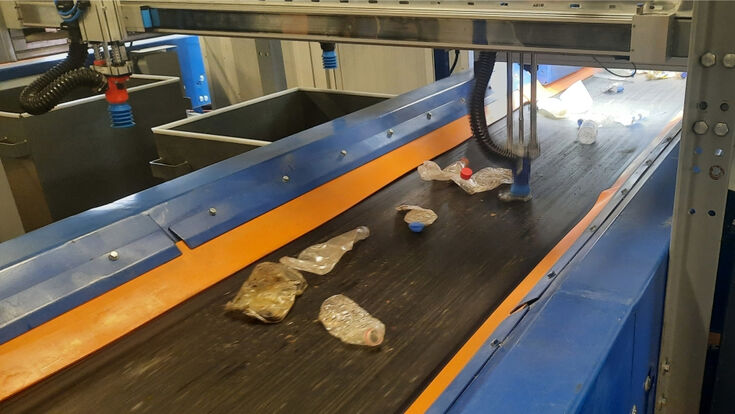Enhancing Environmental Sustainability With Strategic Fluid Waste Removal Solutions
In the world of environmental sustainability, the effective administration of liquid waste stands as a critical focal factor in protecting our communities and guarding public health and wellness. The intricate internet of challenges bordering fluid waste disposal demands a calculated method that goes past traditional approaches. By exploring lasting solutions tailored to details contexts, markets can not just mitigate ecological injury but likewise unlock lasting benefits for their operations. As we browse the complexities of liquid waste elimination in today's landscape, it becomes progressively noticeable that a proactive position is necessary. Allow us begin on a trip to discover the transformative possibility of strategic liquid waste administration techniques in enhancing ecological sustainability.
Relevance of Fluid Waste Management

Among the key reasons liquid waste administration is important is its straight effect on public health and wellness. Unattended or incorrectly dealt with liquid waste can include harmful microorganisms and chemicals that present significant health dangers to areas. Infected water resources can result in waterborne diseases, affecting both human health and wellness and ecosystems. Proper management of liquid waste helps avoid these health risks and makes sure the health of the populace.

Challenges in Fluid Garbage Disposal
Given the important importance of appropriate fluid waste monitoring in protecting public health and wellness and ecological wellness, it is imperative to deal with the many obstacles related to liquid waste disposal methods. One considerable obstacle is the absence of adequate infrastructure for the collection, treatment, and disposal of liquid waste. Lots of areas, specifically in creating nations, deal with insufficient facilities and resources to handle the increasing volume of liquid waste generated. This leads to improper disposal methods such as dumping in water bodies or unauthorized landfills, posing serious health risks and environmental air pollution.
An additional obstacle is the existence of dangerous substances in fluid waste, including chemicals, hefty steels, and microorganisms. Appropriate identification and treatment of these harmful elements require customized understanding and equipment, which might not always be conveniently available. Additionally, the price of carrying out safe disposal techniques can be expensive for some communities and industries, bring about non-compliance and additional ecological damage.
Lasting Liquid Waste Solutions
Among the pushing requirement for efficient fluid waste monitoring strategies, the crucial of lasting remedies arises as a paramount concern for environmental preservation and public health and wellness. Sustainable fluid waste solutions encompass an array of cutting-edge technologies and practices aimed at reducing the environmental impact of waste disposal.
Furthermore, sustainable fluid waste remedies focus on this hyperlink the preservation of water resources with the application of water recycling and reuse approaches. By dealing with and repurposing wastewater for non-potable applications like watering or commercial procedures, these remedies add to water preservation initiatives and minimize the stress on freshwater sources. In general, the integration of lasting fluid waste services not only sustains ecological sustainability however also fosters read the full info here a much healthier and a lot more durable society for future generations.
Advantages of Strategic Elimination Practices
Purposefully executed elimination techniques play an important duty in optimizing liquid waste monitoring systems for ecological sustainability and public health security. By taking on strategic removal methods, companies can significantly decrease the ecological influence of fluid waste disposal.
In addition, these techniques advertise source healing by allowing the extraction of useful products from fluid waste streams. In addition, critical elimination methods can enhance functional performance and cost-effectiveness by enhancing waste administration processes and optimizing source allowance.
Carrying Out Efficient Ecological Approaches
Efficient implementation of environmental approaches is vital in accomplishing sustainable fluid waste administration practices. To start with, firms have to perform detailed environmental analyses to determine potential threats and effects related to their fluid waste disposal procedures. By comprehending the ecological ramifications of their operations, companies can develop targeted methods to minimize damage to communities and public wellness.
Moreover, executing efficient environmental approaches includes setting clear goals and goals for fluid waste management - Reclaim Waste Melbourne. These goals must specify, quantifiable, attainable, relevant, and time-bound (CLEVER) to make certain liability and track progression in the direction of sustainability targets. Firms can additionally leverage innovation and development to enhance liquid waste treatment procedures, lower source usage, and improve general efficiency
Collaboration with regulatory firms, stakeholders, and ecological professionals is an additional key element of effective approach execution. By engaging with external partners, organizations can get beneficial understandings, access resources, and guarantee compliance with ecological legislations and policies. On the whole, a positive and critical strategy to ecological administration is necessary for mitigating environmental threats and promoting long-term sustainability in liquid waste removal practices.
Conclusion
To conclude, strategic liquid waste elimination remedies play an essential role in enhancing ecological sustainability. By addressing the challenges in fluid waste disposal and executing sustainable practices, we can lower the adverse influence on the atmosphere - Reclaim Waste Melbourne. It is necessary to prioritize reliable ecological techniques to ensure the lasting health and wellness and go to this site wellness of our earth
By applying effective waste administration techniques, such as appropriate collection, therapy, and disposal techniques, the threats linked with liquid waste can be substantially reduced.
Offered the important importance of proper liquid waste administration in safeguarding public wellness and environmental health, it is critical to attend to the numerous obstacles associated with fluid waste disposal practices. Lasting liquid waste solutions include an array of ingenious modern technologies and methods intended at decreasing the ecological impact of waste disposal.Purposefully implemented elimination techniques play a vital role in enhancing fluid waste management systems for environmental sustainability and public wellness protection. Generally, a aggressive and tactical method to ecological monitoring is vital for minimizing environmental risks and promoting lasting sustainability in fluid waste removal techniques.